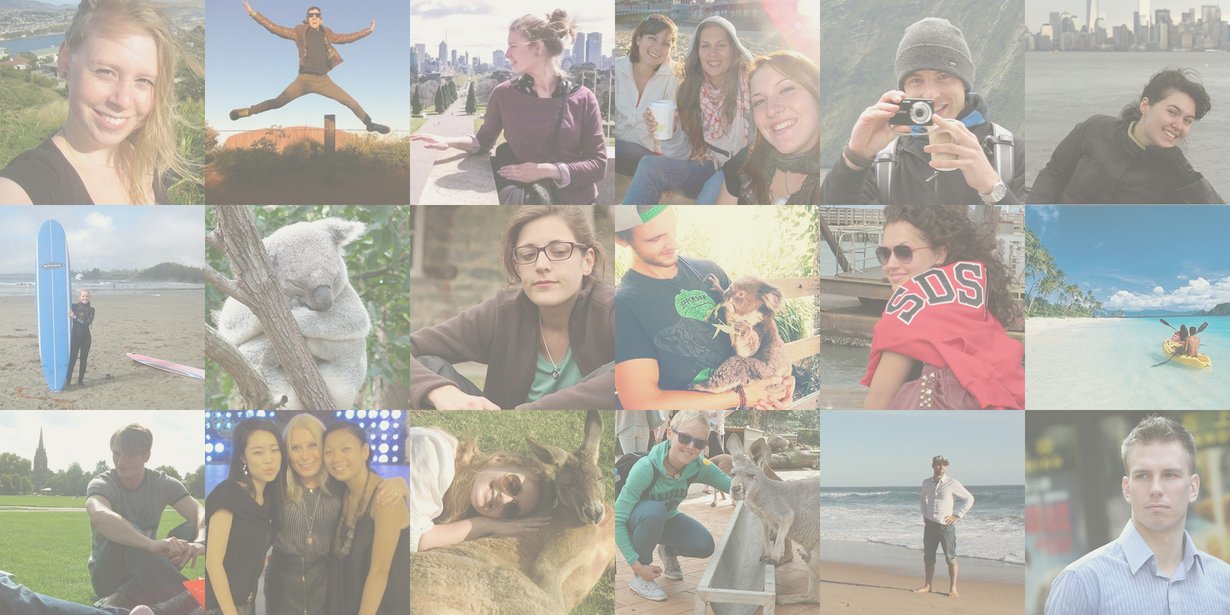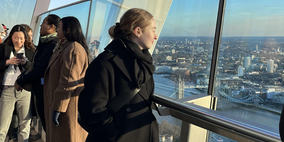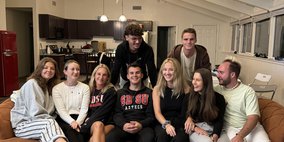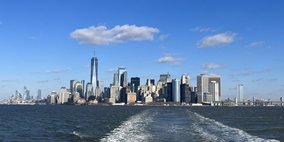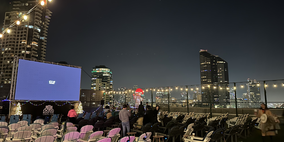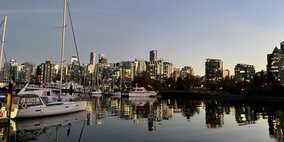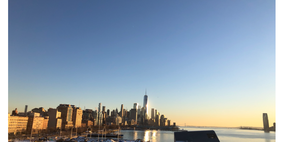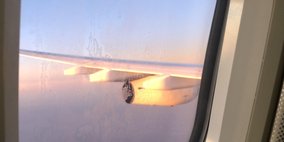Erfahrungsbericht: Jens
„“
About me
I live and study in Southern Germany, near Stuttgart. I’m studying towards a Master’s degree in Business Informatics. The semester in Bangkok was my first exchange semester ever, and I was able to go abroad just in time since I’m about to complete my degree. I think that every students today is expected to have experiences gained abroad.
Finances
Our university only offered scholarships for universities that it was partnered with and unfortunately it didn’t have any partners in Thailand, where I had chosen to go. Scholarships offered by companies didn’t work either since I didn’t have the time or the will to work for them as well. Asia Exchange, luckily, also offers scholarships and I applied for it – by writing a motivational letter. Asia Exchange, thus, is a good option for students whose own home university doesn’t have partners in Thailand. I ended up getting one of the Asia Exchange scholarships which covered the tuition fee for the university in Bangkok (about 1.400 €). I still needed thousands of Euros for all the other expenses, though, and I covered this with a study credit from my government. The study credit is offered to those students who have to bypass a financial/income gap, e.g. a semester abroad. It has low interest and can be paid back after you’ve finished your studies. In addition, I had some savings of my own.
Applying
The next step was to actually apply for the semester abroad. I did this via Asia Exchange and found it very easy and comfortable. You just fill out the form on their website and they do the rest for you. It is also cheaper to do it this way instead of organizing the whole semester all by yourself. Within a few days after applying, the letter of acceptance from Asia Exchange came, followed by the official acceptance letter from the university.
Next step was to getting a visa. I contacted the local embassy of Thailand and they explained all the formalities and helped with the paper work. I had a 90 day visa and so had to extend it while in Thailand. For the extension my host university in Thailand gave me an official letter to be brought to the local immigration bureau. Normally getting an extension for your visa is a quick process…normally. But because of a busy day at the bureau, I had to wait an entire day in the line. Surviving the wait is the difficult bit, the next step is easy: You show your documents to the man or lady at the immigration bureau counter and they will stamp your passport. The price for this was around 40 €.
Search for an accommodation
Looking for accommodation in Bangkok was more difficult than I expected. My friend and I started at the Asia Exchange website and contacted one of the places (Viphavadi-tower) after comparing the locations and prices. They took forever to get back to us, however, and I duly learnt that it is, in fact, not at all common to do business in Thailand in advance. Mostly, business is conducted face to face. So, it is best to book a hotel for the first few days in Bangkok and then look around for a cheap and nice place.
The first days in Thailand
I began the trip to Thailand with a somewhat sinking feeling about the accommodation. The journey was very long and exhausting. From our home to our new home in Bangkok, it took us about 26 hours in total. Before reaching home, though, we had to get there from the airport. Taxis in Thailand are, in general, cheap but make sure you hop onto a one with a taximeter. We thought we were ahead of the curve by asking the lady at the tourist information about the best way to get to our apartment. She called us a cab but it turned out it hadn’t a meter and we ended up paying nearly five times more than we should have. The good news was that the driver knew exactly where we were going. When we arrived at the apartment the guys at the reception did not know about our reservation (as expected) but had, luckily, some apartments available. We stayed there for a few days but were not so happy about with it. It was very noisy, not very clean, the water was cold and the staff did not speak English well. And so we searched for other accommodations around the university…
A ‘secret’ we came across: the “Thanpuying-Suites”. The secret being that the Google Maps location for it is inaccurate. So if you want to find it, you have to ask the local people how to find “88, Ngamwongwan 54, Yeak 5”.We stayed here the whole time because the apartment was very clean (with daily cleaning service!) and had a pool, security-staff, fitness-room, was quiet and had a very friendly staff who spoke English well. The room was 90 m², with two bedrooms, two bathrooms, a kitchen and a living room - for 28.000 Baht per month with everything included (water, electricity and air condition). Compared to the accommodations of the other exchange students, it was one of the most expensive ones. But it was also (in my opinion) the best accommodation near the university. And so we had visitors nearly every day at our nice place ;-)
Studies at the university
I studied at the Bangkhen campus of Kasetsart University, located in Northern Bangkok. I took ‘Webservices’ and ‘Datawarehouse’ which were part of the “Software and Knowledge Engineering” program in the Faculty of Engineering. In addition, I took a Thai language course from the Faculty of Economics which teaches you basic conversational skills.
On average, the courses in Thailand are as complex as in Germany but the Engineering courses were more difficult than their equivalents at home, with a heavier workload. On the other hand, the Economics courses were easier at Kasetsart so pick your courses wisely. The exams are different in Thailand, with two major examinations each semester (a mid-term and a final) as well as group assignments.
Three Thai credits are usually transferred into five ECTS credits but you should talk in advance with your professors from your home university to ensure which courses they will acknowledge. Be aware of the changing course selections though. All the courses listed at the Asia Exchange were not available during my semester, some were only offered during, e.g. the winter semester. So you can’t create your final timetable till the first days at the university.
Holidays
Some of the best parts of my time in Thailand were the holidays and the trips. The fact that Bangkok is located Central Thailand makes traveling very easy. Buses, trains and planes are cheap and recommended. For longer trips, I would prefer a flight because the other two options are not as comfortable and quick. If you want to go on a longer trip, it’s better to do it after you finish your semester. You’ll have more time and university work won’t be on your mind no more.
I travelled for 3 weeks after the semester as well as going on some short trips while studying. One of the short trips was to Chiang Mai which is located in the northern part of Thailand. This city is famous for a special festival, organized November: the Loi Krathong. This festival is celebrated all over the country but is especially big in Chiang Mai. Many people all over the world know it because of the fantastic launching of the fire balloons. Book in advance, it’s very popular!
My longer trips were to Surat Thani / Khanom and the islands of Koh Samui and Koh Phangan. Surat Thani / Khanom area is not very often visited by tourists and a good place to relax. The special dolphins there exist in only one other place in the world and seeing them was an amazing experience.
My next stop was at the island Koh Samui. It’s more touristic but there is also more action, i.e. restaurants, bars and nightlife. The hotels and resort areas are also very good and highly ranked. From Samui I travelled to Koh Phangan, famous for its full- and half-moon parties. The beaches of Koh Phangan are also some of the most beautiful in the world, I found other gorgeous ones in Krabi (check out Railey) - a paradise for climbing, snorkeling, spotting monkeys and for relaxing.
Other
Be sure to have a proper insurance! Make sure it covers the entire period you are away. Many travel insurances only cover a few weeks/months trip so get a separate insurance for the additional time abroad if needed. It may be true that hospital and doctor visits in Thailand are cheaper than in Europe but they are not for free.
